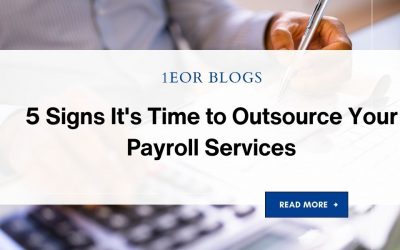Introduction – Payroll Is No Longer Local. Neither Is Talent.
In today’s business landscape, the team that builds your product might span five countries and three time zones. The engineer could be in Berlin, the designer in Buenos Aires, and your operations lead might work remotely from Bangalore. Global teams are no longer an exception—they’re the new standard for fast-growing companies. But while technology has made distributed work possible, it hasn’t solved one of the trickiest challenges of scaling internationally: payroll.
Managing payroll across borders is not just about sending money. It’s about navigating a minefield of labor laws, tax regulations, benefits structures, and compliance requirements—each varying wildly by country. And if you’re still running payroll the old-school way, you’re going to hit friction fast.
That’s where modern payroll services come in.
These aren’t your grandfather’s payroll processors. Today’s solutions are cloud-based, compliance-driven, automation-ready, and built to support distributed teams. In this blog, we’ll explore exactly how modern payroll services help growing businesses manage global and remote teams—with speed, accuracy, and peace of mind.
The Problem: Traditional Payroll Wasn’t Built for Remote Teams
Legacy payroll systems were designed for static, centralized workforces. A team under one roof, working in a single legal jurisdiction, paid in the same currency and schedule. This worked fine—until the world changed.
Today, your startup might onboard a remote developer in Thailand, a contractor in Canada, and a marketing lead in Spain—all within the same month. That single-jurisdiction payroll system? It starts to crumble. You now have to manage:
- Multiple tax codes and social security systems
- Currency conversions
- Different pay schedules and holidays
- Classification risks (employee vs contractor)
- Data privacy laws (like GDPR)
- Local labor rights and severance rules
Try handling all that with spreadsheets or outdated software, and you’re on a collision course with errors, fines, and frustrated employees.
Growing companies need a payroll system that’s flexible, scalable, and globally aware. That’s what modern payroll services are designed for.
Modern Payroll Services: The Infrastructure for Global Teams
At its core, a modern payroll service is more than just a calculator. It’s a compliance engine, a payment platform, and a human resource management tool rolled into one. It integrates directly with your hiring systems, time-tracking tools, and benefits providers. Most importantly, it’s jurisdiction-aware—it knows the tax, labor, and employment rules wherever your team is based.
This makes it possible to onboard employees and contractors across borders, pay them accurately, file the right taxes, and remain compliant with local laws—all without building an internal team of international HR and legal experts.
For fast-growing companies looking to scale globally, this is a game-changer. Instead of spending weeks setting up local entities or reading up on foreign tax codes, you plug into a payroll service that already knows the terrain.
How Modern Payroll Services Handle Compliance in Every Country
The biggest risk with paying remote and global teams is non-compliance. Misclassify a contractor in France? You could face back taxes, fines, and legal trouble. Fail to provide the right benefits in Brazil? That’s a lawsuit waiting to happen. Modern payroll services eliminate this risk.
Here’s how they do it:
- Local Expertise Built In:
Top payroll providers employ local experts or partner with legal teams in every country they serve. This means your company automatically complies with region-specific tax codes, labor laws, and employee rights. - Automated Tax Filings:
No more manually calculating deductions or hunting down tax deadlines. The system handles it all—from income taxes and social contributions to government filings. - Classification Support:
Whether someone should be treated as a contractor or a full-time employee depends on local rules—not your internal labels. Payroll services help you classify correctly and avoid legal grey areas. - Compliance Updates in Real Time:
Laws change. Good payroll services update in real-time to reflect those changes, so you’re never working off outdated rules.
With this kind of infrastructure, your business doesn’t just survive international compliance—it thrives in it.
Managing Global Payments Without the Hassle
Paying a global team isn’t just about calculations—it’s about movement. Funds need to travel across borders, convert into local currency, and arrive in employee accounts on time. This is where modern payroll services outperform traditional systems by a mile.
Instead of managing multiple bank accounts, wiring fees, and currency headaches, you can handle everything through a single interface. Payroll providers take care of:
- Real-time currency conversion
- Competitive exchange rates
- Fast cross-border payouts
- Local payment rails (ensuring employees get paid via the methods they expect)
The result? Your team gets paid correctly and consistently—whether they’re in New York, Nairobi, or New Delhi. And you don’t have to think twice about how the money gets there.
Centralized Systems for a Decentralized Workforce
One of the biggest struggles with managing global teams is fragmentation. You’re tracking salaries, contracts, documents, and benefits across multiple tools—or worse, through email threads and Slack messages.
Modern payroll services solve this with a centralized platform.
Everything lives in one place: employee profiles, contracts, pay history, tax forms, time-off requests, and benefits info. No more toggling between spreadsheets or trying to remember who has what type of healthcare coverage in which country.
This single source of truth reduces errors, increases transparency, and gives your HR and finance teams a powerful control center. It also improves reporting and decision-making—essential when your workforce is remote and your management team needs real-time visibility.
Employee Experience Matters—Even Across Borders
Remote employees face enough challenges already—different time zones, isolation, cultural gaps. The last thing they need is late paychecks or confusing tax documents.
Modern payroll services make sure remote workers feel supported, informed, and valued. Here’s how:
- Self-Service Portals: Employees can view payslips, tax documents, and benefits in their own language and currency.
- On-Time Payments: Consistent payroll builds trust, which is especially crucial when you’re managing a distributed team.
- Localized Benefits Support: Great payroll services help you offer location-specific perks—health insurance in Germany, pension support in the UK, or wellness stipends in Southeast Asia.
By making payroll seamless, you’re not just avoiding problems—you’re reinforcing your employer brand globally.
Real-Time Insights and Global Reporting
You can’t manage what you can’t measure. That’s why visibility is one of the biggest assets of modern payroll platforms.
Instead of scrambling to gather payroll data during board meetings or audits, you get clean, real-time reporting dashboards with:
- Total headcount and payroll spend by country
- Tax obligations and filing status
- Contractor vs employee breakdowns
- Historical payroll trends and forecasts
These insights help you plan, grow, and budget smarter—especially when you’re navigating expansion into new regions.
Global Hiring Without the Legal Complexity
Here’s a dirty little secret: many companies delay hiring in new countries because they don’t want to deal with legal complexity. Setting up a local entity takes time, money, and lawyers. But delaying the right hire can cost you momentum and market share.
Modern payroll services remove that barrier by acting as the legal employer of record (EOR) in countries where you don’t have a local presence. This means you can legally hire full-time employees without establishing an entity—while remaining 100% compliant.
With services like 1EOR, you can:
- Hire talent in 100+ countries
- Offer full employee benefits and protections
- Remain compliant with local labor laws
- Scale or exit regions easily
This flexibility lets you go global without the growing pains.
Why Founders and CFOs Are Choosing Payroll Services Over Internal Teams
Building an in-house payroll team that can handle global compliance is expensive and time-consuming. It means hiring legal counsel in every country, integrating different systems, and training internal staff on ever-changing laws.
Modern payroll services offer a better solution: one partner, one system, and global coverage from day one.
Founders and CFOs love this model because it:
- De-risks expansion into new markets
- Saves time for HR, finance, and legal teams
- Enables strategic hiring wherever talent lives
- Improves employee retention through timely, accurate payroll
- Controls cost by eliminating inefficiencies
This isn’t about outsourcing admin. It’s about building the infrastructure that modern businesses need to scale.
Conclusion – Payroll Is the Backbone of Distributed Work
Remote work isn’t a trend—it’s the foundation of how tomorrow’s businesses will be built. But for it to work at scale, you need systems that match the complexity of a global team.
Modern payroll services are that system.
They offer global compliance, real-time visibility, automated tax handling, seamless payouts, and a frictionless experience for employees—no matter where they are. They give your business the confidence to hire anywhere, scale fast, and pay right, every time.
At 1EOR, we help high-growth companies manage payroll for remote and global teams without the risk, delay, or legal headaches. Whether you’re hiring in one country or twenty, we’ll make sure your payroll is future-ready.
→ Ready to onboard global talent without breaking your back-office? [Explore 1EOR’s Global Payroll Services Now]
FAQs About Payroll Services for Remote and Global Teams
- How do payroll services help manage remote teams?
They automate payments, taxes, and compliance, ensuring remote employees are paid accurately and on time across different regions. - Can payroll services handle global employees and contractors?
Yes. Most modern platforms support both, offering tailored tax and compliance management based on location and worker type. - What’s an Employer of Record (EOR)?
An EOR is a third party that legally employs your international staff on your behalf, allowing you to hire globally without setting up a local entity. - Are payroll services secure for remote payments?
Top providers use encrypted systems, GDPR compliance, and multi-layer authentication to ensure payroll data and transactions remain secure. - Do remote employees get payslips and tax forms?
Yes. Modern payroll platforms offer digital access to payslips, tax documents, and benefits in local formats and languages. - How are taxes handled in different countries?
The payroll service calculates and files taxes automatically according to each country’s labor laws and regulations. - Is it expensive to use global payroll services?
While there are fees, they’re often offset by reduced legal risk, fewer errors, and savings from avoiding internal headcount expansion. - Can I use a payroll service for just a few remote employees?
Yes. Many platforms scale with your business and support even small teams distributed across multiple countries. - How long does it take to start using a global payroll service?
Setup can take anywhere from a few days to a couple of weeks depending on complexity, but it’s far faster than setting up local entities.
10. Why should I choose 1EOR for payroll services?
Because 1EOR combines global compliance, fast onboarding, and seamless payment infrastructure into one platform designed for businesses like yours.


